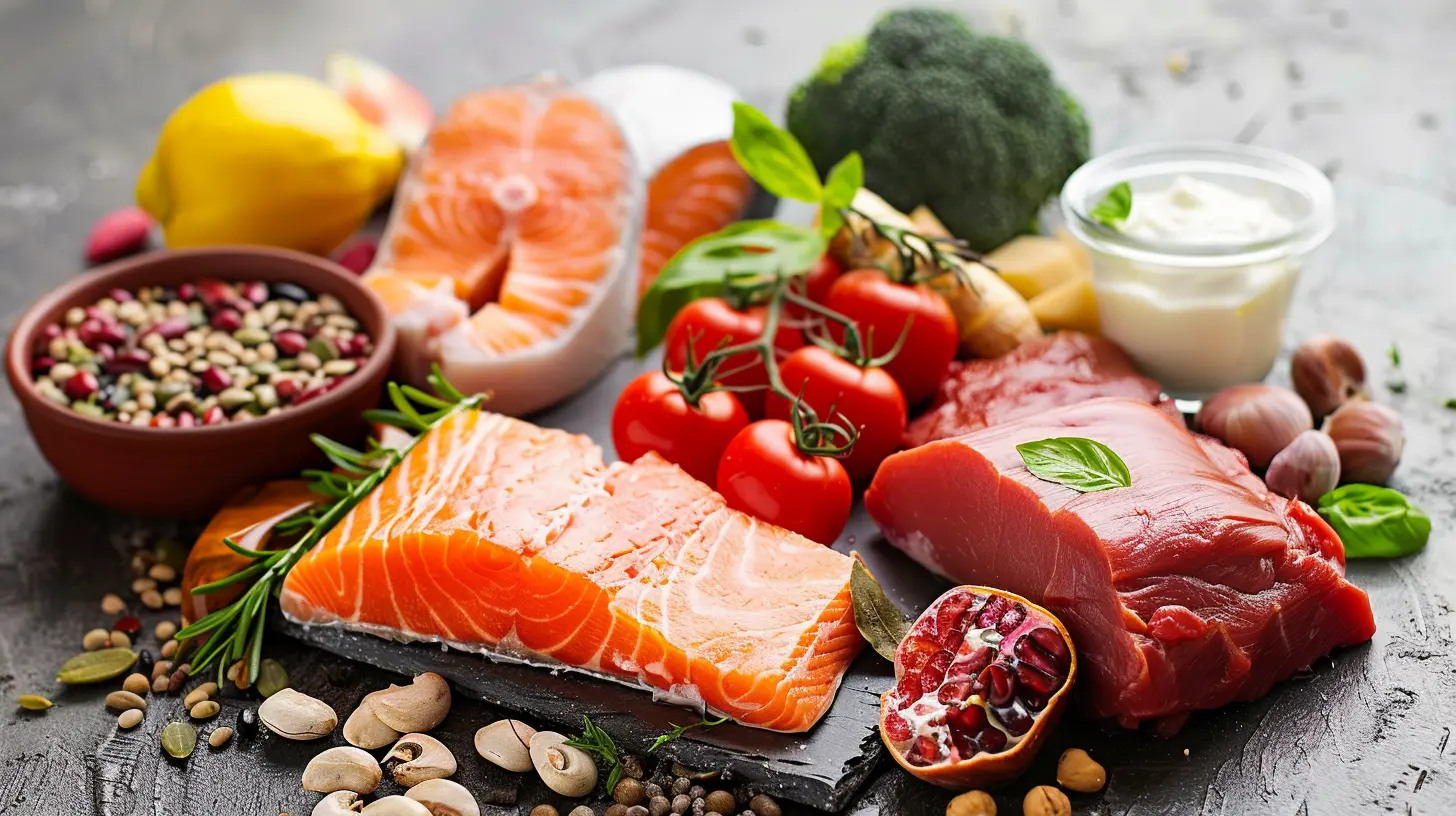12 April 2025
Introduction
Ever wonder if you’re eating at the right times to maximize your strength and performance? Well, you’re not alone! Many gym-goers, athletes, and weekend warriors think that just eating the right foods is enough. But the "when" is just as important as the "what" when it comes to fueling your body for greatness.
Think of your body like a high-performance sports car—sure, you need premium fuel, but if you gas up at the wrong times, you’re not getting the most out of the engine. Whether you're lifting heavy, sprinting fast, or just trying to impress your gym crush, nutrient timing can be the secret sauce to your success.
So, let’s break it down and see when you should be eating to achieve peak performance without turning into the guy who starts bench pressing right after eating a giant burrito. 
The Science Behind Nutrient Timing
Before we jump into what to eat and when, let’s get a little nerdy (but not too much, don’t worry).Nutrient timing is all about eating the right nutrients at strategic times to enhance workout performance, improve recovery, and build muscle efficiently. Your body processes protein, carbs, and fats differently depending on the time of day and the activity you’re engaged in. By timing your meals properly, you can:
✔️ Boost energy during workouts
✔️ Enhance muscle growth and repair
✔️ Reduce muscle soreness (because no one likes walking like a penguin after leg day)
✔️ Optimize fat loss without sacrificing muscle
Now that we know why nutrient timing is important, let’s dive into the when and what of getting the most out of your meals. 
Pre-Workout Nutrition: Fueling the Machine
When to Eat?
About 30-90 minutes before your workout. This gives your body enough time to digest and convert food into usable energy.What to Eat?
Think of your pre-workout meal like a warm-up for your stomach. You need a combo of fast and slow-digesting carbs along with a little protein.✔️ Carbs: Your body’s preferred energy source. Opt for easily digestible carbs like bananas, oatmeal, whole-grain toast, or rice cakes.
✔️ Protein: Helps prevent muscle breakdown. Go for chicken, Greek yogurt, egg whites, or a protein shake.
✔️ Fats: Keep them low. Too much fat slows digestion, and you don’t want your stomach working harder than your muscles.
What to Avoid?
🚫 Greasy fast food – You’ll regret those fries when you start burping them up mid-squat.🚫 Too much fiber – Save the broccoli and beans for later unless you want to spend your workout in the bathroom.

Intra-Workout Nutrition: Keeping the Engine Running
When to Eat?
For workouts longer than 60 minutes, a little extra fuel can keep you from hitting "the wall."What to Eat?
✔️ Simple Carbs (if needed): Sports drinks, a small piece of fruit, or gummy bears (yes, gummy bears—fast-digesting sugars are great for endurance).✔️ Electrolytes: If you're sweating buckets, consider coconut water or an electrolyte drink to replenish lost minerals.
What to Avoid?
🚫 Heavy protein or fat – Your body won't digest it quickly, and it might just sit in your gut making you sluggish.
Post-Workout Nutrition: Recovery Mode Activated
When to Eat?
Within 30-60 minutes after your workout—this is the famous "anabolic window" when your muscles are crying out for nutrients.What to Eat?
✔️ Protein: Helps repair and grow your muscles. Think whey protein, chicken breast, eggs, or cottage cheese.✔️ Carbs: Replenishes the glycogen (energy stores) burned during exercise. Opt for rice, sweet potatoes, whole grains, or fruit.
✔️ Hydration: Water, water, and more water! Or if you're feeling fancy, a recovery drink.
What NOT to Do?
🚫 Skip this meal – Unless you like feeling sore and drained, don't neglect your post-workout nutrition. Your muscles are like hungry toddlers—they need to be fed ASAP.Before-Bed Nutrition: The Overnight Recovery Plan
When to Eat?
About 30-60 minutes before bedtime.What to Eat?
✔️ Slow-Digesting Protein: Casein protein, cottage cheese, Greek yogurt, or a handful of almonds. This keeps your muscles fueled overnight.✔️ Healthy Fats: Avocados, nuts, or peanut butter to slow digestion and keep you full.
What to Avoid?
🚫 Sugary snacks – Unless you want a sugar crash or weird dreams about racing llamas.🚫 Big, heavy meals – You don’t want to go to bed feeling like you swallowed a brick.
Common Nutrient Timing Mistakes
Even if you’ve got the basics down, mistakes happen. Avoid these common pitfalls:😬 Skipping Pre-Workout Meals – Low energy = bad workouts.
😬 Not Eating Enough Protein Post-Workout – Your muscles need building blocks to grow!
😬 Overloading on Fast Food After Workouts – Yes, you burned calories, no, that doesn’t mean a triple cheeseburger is a good idea.
😬 Ignoring Hydration – Muscles need water to function properly. Don’t let dehydration sabotage your gains!
Final Thoughts
Nutrient timing isn’t just for elite athletes—it’s for anyone who wants to maximize their performance and recovery. When you eat is just as important as what you eat. By timing your meals strategically, you’ll train harder, recover faster, and feel better overall.So next time you hit the gym, remember: fuel up before, stay hydrated during, and recover properly after. Your muscles will thank you (and so will your future PRs).
Now go out there and crush it!




Sablethorn Gibson
Great analysis on nutrient timing! Optimizing nutrition around training can significantly enhance performance and recovery. This article provides valuable insights for athletes looking to maximize their strength and results. Thank you!
April 19, 2025 at 3:14 AM